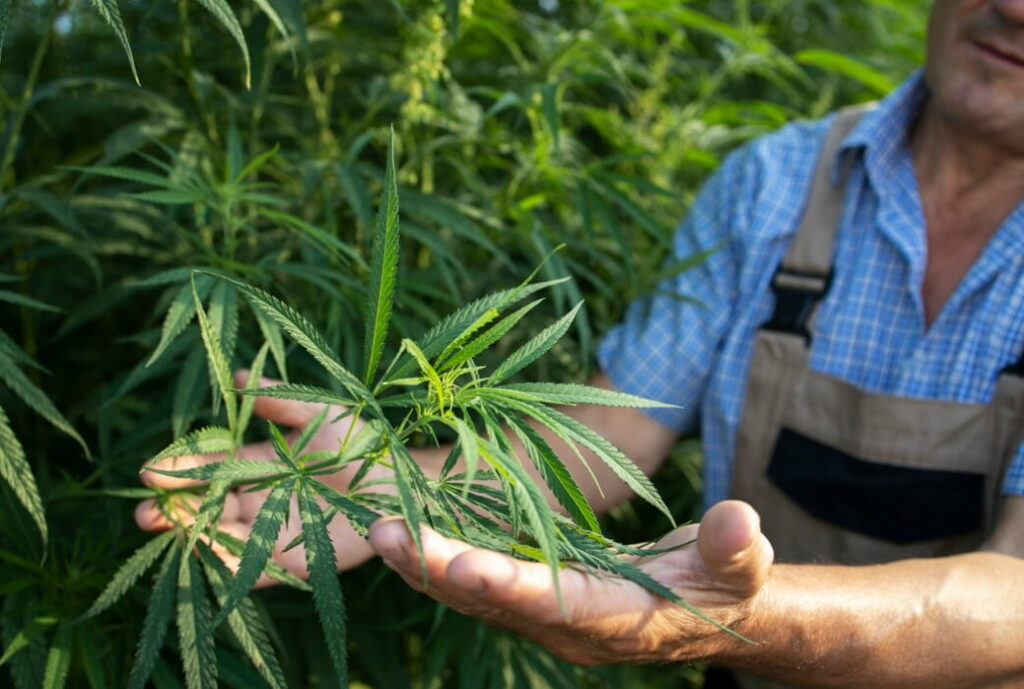In an era where environmental concerns are paramount, there appears to be a burgeoning shift in collective consciousness. Humanity seems poised on the cusp of a transformative era, where the environmental degradation of the past is being countered by a unifying vision for a sustainable future. This sentiment is underscored by our shared journey towards environmental stewardship and a preference for personal ethical guidance over authoritarian dictates. This profound change might very well be the essence of our social evolution.
The Resurgence of Industrial Hemp and its Global Implications
Do you sense a shift in the air? A prelude to something profoundly significant unfolding for humanity? Despite the extensive damage we’ve inflicted on Earth, there’s an emerging unity—a collective ascent and a shared desire to navigate by the compass of personal ethics rather than yielding to oppressive rulers. Perhaps, this is what the vast social experiment was always about.
On occasion, we catch glimpses of this progress. Take the United Nations’ scientific findings indicating the recovery of the ozone layer, a testament to our capacity for environmental repair when we act collectively. This spirit is echoed in the growing acceptance of industrial hemp, once stigmatized and now heralded for its versatility and ecological benefits. Its resurgence symbolizes a broader shift in perception, one that transcends traditional political divides. Even staunchly conservative farmers are cultivating hemp, integrating this sustainable crop into their fields.
The potential of hemp extends far beyond its current applications. Consider Tim Castleman’s projection on biofuels: with hemp ethanol potentially being produced at $1.37 per gallon, factoring in technological advances and tax incentives, we’re looking at a sustainable fuel revolution that could significantly lower costs.
The information currently accessible, despite restrictions and limited data, points to a hopeful horizon. What else might be possible with hemp’s full resurgence? The implications for our economy, environment, and societal structures could be profound.
Hemp: An Agricultural Marvel

Uncover the wonders of hemp with these facts:
- Hemp is less reliant on fertilizers and water compared to other biofuel crops like corn and switchgrass.
- It eliminates the need for the costly drying processes that crops such as corn and sugar cane require.
- Hemp thrives in a variety of climates where other energy crops may not, enhancing its versatility.
- When it comes to withstanding less-than-ideal autumn weather, hemp is notably hardier than many alternative crops.
- Known for its low moisture content and high cellulose level, hemp stands out among crops.
- Hemp plays a role in soil remediation by absorbing heavy metals and other pollutants from the earth.
- Given its adaptability to various soil types, hemp can be cultivated in almost any nation, paving the way for widespread, localized biofuel production and potentially reducing conflicts over oil resources.
A Historical Perspective on Hemp and the Automotive Industry
Exploring the origins of the automotive industry, one discovers fascinating insights into the initial vision for fuel sources. Derived from a 1990 commentary by Hugh Downs, we learn that the inception of the diesel engine by Rudolf Diesel in 1896 came with the expectation that it would be powered largely by vegetable and seed oils, which were considered more efficient and preferable to petroleum. Among these, hemp was recognized for its superior efficiency. In the early 20th century, industrial giants like the Ford Motor Company also invested in biomass fuels, including hemp, recognizing their potential. Ford’s biomass conversion plant in Michigan successfully produced various critical industrial compounds from hemp, materials that are typically sourced from oil today.
The intrigue deepens when considering the influences that may have led to the prohibition of hemp, involving major oil companies and industrialists of the time — a topic with layers of complexity that merit separate discussion.
The Emerging Truth of Hemp as an Energy Source

The multifaceted utility of hemp in producing both biodiesel and ethanol, coupled with its economic advantages and environmental benefits, is becoming increasingly apparent. As the collective mindset shifts towards sustainability and as the quest for oil alternatives gathers momentum, it seems plausible that we could witness a resurgence of hemp-based fuels in the automotive industry, echoing a forgotten legacy of non-petroleum energy solutions.
Conclusion
The revival of industrial hemp marks a turning point in our stewardship of the Earth. Its diverse applications, from agriculture to energy, echo a collective shift toward sustainability and self-reliance. Hemp’s growth not only fosters ecological healing but also symbolizes our evolving ethos, choosing to mend our environmental legacy and seed a future where the planet thrives. This green resurgence is a testament to our ability to embrace nature’s solutions for a more harmonious coexistence.

